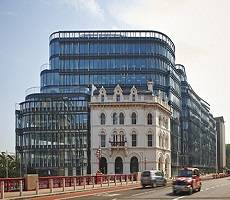August 11, 2014
Government extends public estate scheme as DCLG moves in with Home Office
 The UK government has announced that it is to extend its groundbreaking One Public Estate scheme to a further twenty local authorities. The programme aims to divest and consolidate government-owned land and property to cut public sector spending and boost economic growth and regeneration. The government believes the initial phase will save £21m in running costs and £88m in capital receipts, generate around £40m for local economies and create an estimated 5,500 jobs and 7,500 homes over the next five years. The Cabinet Office is now looking to build on this with the extension of the schemes to councils including Liverpool and Birmingham city centres as well as six from Greater Manchester and Cornwall, Southampton and Plymouth. The Government Property Unit will provide funding and training to the participating authorities.
The UK government has announced that it is to extend its groundbreaking One Public Estate scheme to a further twenty local authorities. The programme aims to divest and consolidate government-owned land and property to cut public sector spending and boost economic growth and regeneration. The government believes the initial phase will save £21m in running costs and £88m in capital receipts, generate around £40m for local economies and create an estimated 5,500 jobs and 7,500 homes over the next five years. The Cabinet Office is now looking to build on this with the extension of the schemes to councils including Liverpool and Birmingham city centres as well as six from Greater Manchester and Cornwall, Southampton and Plymouth. The Government Property Unit will provide funding and training to the participating authorities.












 The UK’s public sector spends almost twice as much on outsourced services as the country’s private sector, according to research from the
The UK’s public sector spends almost twice as much on outsourced services as the country’s private sector, according to research from the 













July 24, 2014
The collaboration between BIFM and CIPD unites the workplace tribes
by James Sutton • Comment, Facilities management, Workplace
(more…)